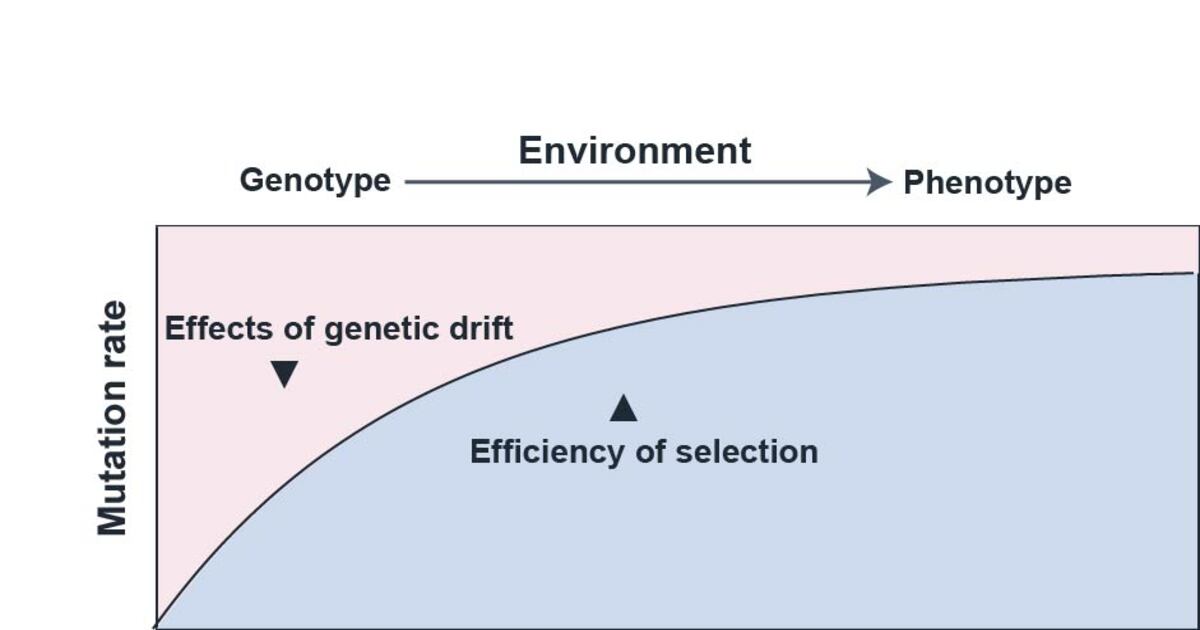- 2.8Impact Factor
- 5.5CiteScore
- 15 daysTime to First Decision
Linking Phenotypic and Molecular Evolution: Mechanisms and Models
This special issue belongs to the section “Population and Evolutionary Genetics and Genomics“.
Special Issue Information
Dear Colleagues,
The link between molecular and phenotypic evolution remains a fundamental but incompletely understood issue in evolutionary biology. Phenotypic adaptation arises from the accumulation of molecular changes that reshape the genotype–phenotype–fitness landscape; however, this translation is modulated by mutation, recombination, drift, and selection. The rate and direction of adaptive evolution depend on the mutational input, distribution of fitness effects, and efficiency of selection and genetic drift, which scale with effective population size (Ne). The tempo and trajectory of adaptation thus emerge from the stochastic origin of mutations and the deterministic action of selection, depending on their population-genetic context and molecular functions (e.g., regulatory and developmental systems). This Special Issue explores the molecular and theoretical foundations of how adaptive evolution proceeds through the dynamic interplay between stochastic processes, selection, and environmental change.
Dr. Wen Wei
Guest Editor
Manuscript Submission Information
Manuscripts should be submitted online at www.mdpi.com by registering and logging in to this website. Once you are registered, click here to go to the submission form. Manuscripts can be submitted until the deadline. All submissions that pass pre-check are peer-reviewed. Accepted papers will be published continuously in the journal (as soon as accepted) and will be listed together on the special issue website. Research articles, review articles as well as short communications are invited. For planned papers, a title and short abstract (about 250 words) can be sent to the Editorial Office for assessment.
Submitted manuscripts should not have been published previously, nor be under consideration for publication elsewhere (except conference proceedings papers). All manuscripts are thoroughly refereed through a single-blind peer-review process. A guide for authors and other relevant information for submission of manuscripts is available on the Instructions for Authors page. Genes is an international peer-reviewed open access monthly journal published by MDPI.
Please visit the Instructions for Authors page before submitting a manuscript. The Article Processing Charge (APC) for publication in this open access journal is 2600 CHF (Swiss Francs). Submitted papers should be well formatted and use good English. Authors may use MDPI's English editing service prior to publication or during author revisions.
Keywords
- genomic and phenotypic evolution
- adaptive evolution
- selection and genetic drift
- genotype–phenotype–fitness landscape
- accumulation of mutations
- evolvability of complex traits
- molecular evolution drivers
- transcriptomic agaianst protein-coding evolution
- experimental evolution

Benefits of Publishing in a Special Issue
- Ease of navigation: Grouping papers by topic helps scholars navigate broad scope journals more efficiently.
- Greater discoverability: Special Issues support the reach and impact of scientific research. Articles in Special Issues are more discoverable and cited more frequently.
- Expansion of research network: Special Issues facilitate connections among authors, fostering scientific collaborations.
- External promotion: Articles in Special Issues are often promoted through the journal's social media, increasing their visibility.
- e-Book format: Special Issues with more than 10 articles can be published as dedicated e-books, ensuring wide and rapid dissemination.

